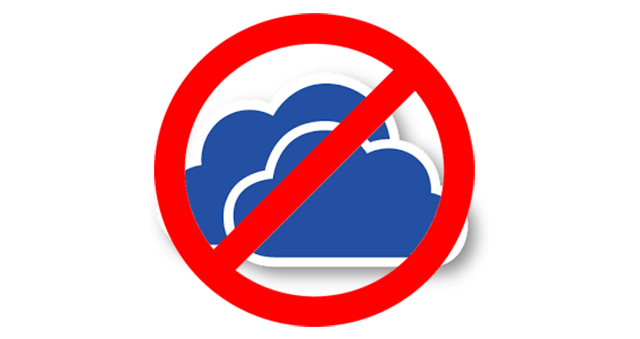
OneDrive, Microsoft’s cloud storage service, is heavily integrated into Windows 10. We've already explained how you can remove the OneDrive entry from File Explorer, but what if you don’t want the service in your new OS at all?
You can disable or uninstall it completely by following these simple steps. This will remove it from File Explorer, and everywhere else.
There is a catch though, and that’s to disable OneDrive you need to use the Group Policy Editor and that tool is only available in the Professional, Enterprise and Education editions of the OS. It isn't in Windows 10 Home.
To launch the Group Policy Editor, click Start and type gpedit.msc. Go to Local Computer Policy > Computer Configuration > Administrative Templates > Windows Components > OneDrive. Then enable Prevent the usage of OneDrive for file storage.
SEE ALSO: How to fix Windows 10's worst problems
You can uninstall OneDrive through the Command Prompt. Right-click the Start button and select Command Prompt (Admin). Terminate any running OneDrive processes by typing taskkill /f /im OneDrive.exe. Hit enter.
If you’re using the 32-bit version of Windows 10 type:
%SystemRoot%\System32\OneDriveSetup.exe /uninstall
Or, if you’re using the 64-bit edition, type:
%SystemRoot%\SysWOW64\OneDriveSetup.exe /uninstall
There’s no confirmation that this has successfully removed OneDrive from Windows 10, but you’ll find the app will no longer be available (your OneDrive files and folders will still exist however).
There’s also a third-party tool you can use to uninstall OneDrive if you want the simplest method. It’s available here.
You can reinstall OneDrive at any point in the future by going to %SystemRoot%\SysWOW64\ in File Explorer and running the OneDriveSetup.exe.

